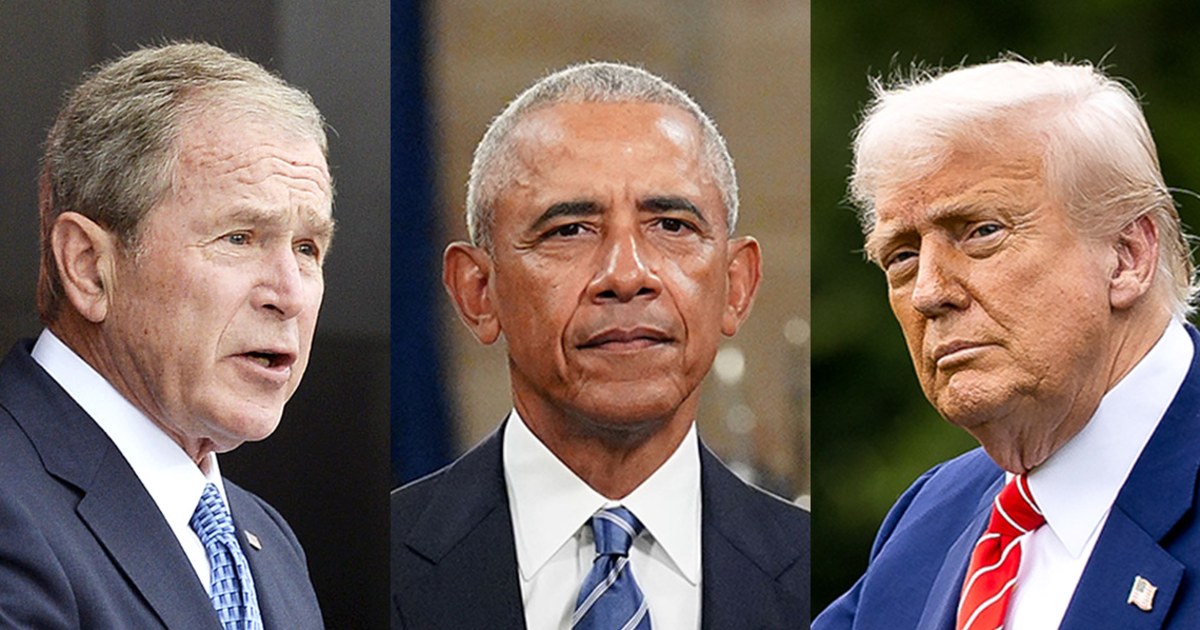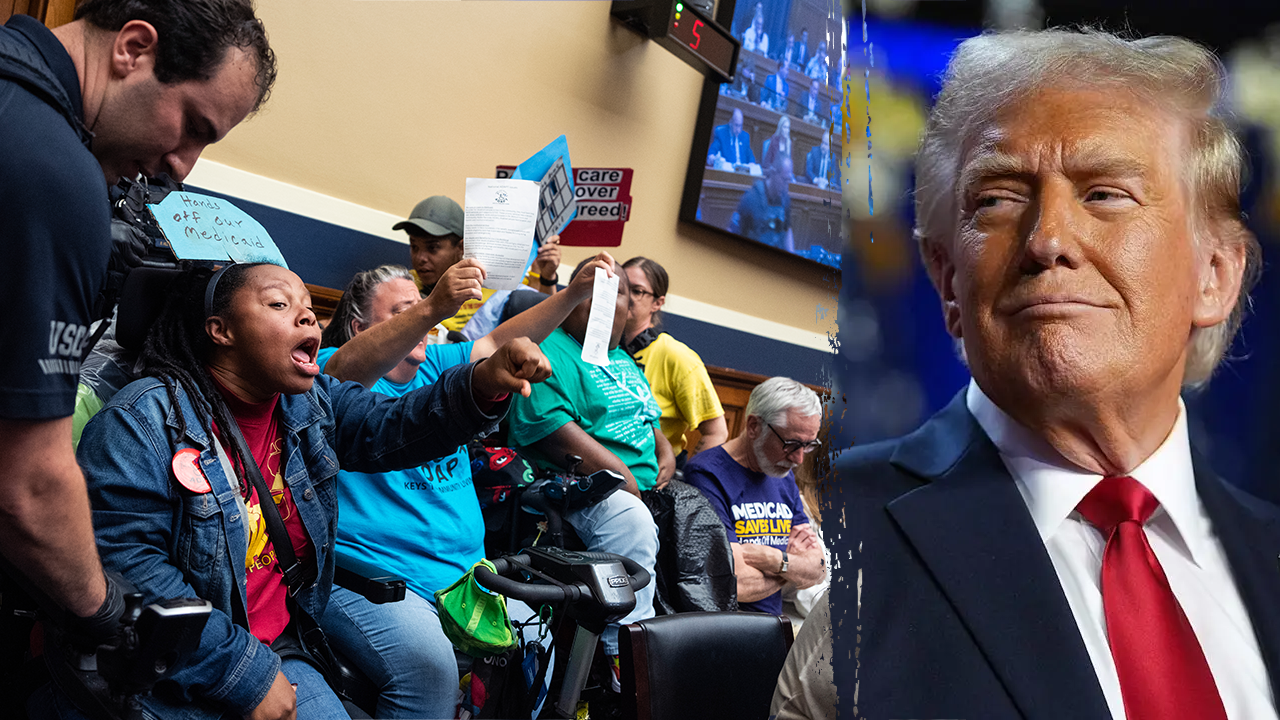On the campaign trail, President Donald Trump sought to win over working-class voters in key swing states with a promise to exempt tips and overtime pay from federal income taxes.
Now, Congress is inching closer to making that promise a reality, despite some concerns about how the moves would contribute to the deficit and potentially disrupt the labor market.
Both measures still face multiple hurdles. House leadership was working throughout the night Wednesday to rally its members to pass a budget bill Thursday morning that includes a tax exemption for tips and overtime before the legislation heads to the Senate. A separate bill that would exempt tips, but not overtime, from federal income taxes unanimously passed the Senate this week and will now need to be taken up by the House.
The tax breaks, which Trump first floated on the campaign trail, have generated a rare coalition of support stretching across typical partisan divides, with unions, including the Teamsters, and industry groups, like the National Restaurant Association, advocating for the tax exemptions along with some Democrats. At the same time, conservative-leaning think tanks and economists have raised concerns over how the exemptions would contribute to the deficit and potentially affect the job market by rewarding some workers over others.
When Trump first raised the idea of ending taxes on tips, several influential Republicans told NBC News they were skeptical of it, citing rising national debt and questioning whether it would be fair to earners who don’t make tips.
But now, with Trump in the White House, the tax exemptions would offer congressional Republicans a selling point to working-class voters in a broader budget bill that's also stocked with benefits for companies and higher-income households. Eliminating taxes on tips has broad support from the public, with around 75% of voters across party lines supporting the move, according to an Ipsos poll last year.
“The working class has left the Democrats and come over to the Republican Party, especially with Trump, that’s who he appeals to — so it feeds the constituency of a lot of our members, and frankly, it’s just really a good idea,” said Sarah Chamberlain, head of the Republican Main Street Partnership, a moderate Republican group. “I realize some of the Freedom Caucus guys don’t like this, but we can find money in other areas to save in order to help the working man and woman.”
While Democrats have largely supported the exemptions, with Sen. Jacky Rosen, D-Nev., helping advance the bill in the Senate, the party still plans to highlight cuts elsewhere in the Republican budget that could hurt the same workers benefiting from the tax cuts, like reductions to Medicaid and food stamps.
"The hypocrisy comes because Republicans are giving a tax cut to tipped workers while decimating Medicaid," said Martha McKenna, a Democratic strategist. "They are giving tipped workers a small break and then punching them in the face with these health care cuts."
The numbers on tipped workers and overtime
While some workers would see significant increases in their after-tax income, the wider impact on the economy would be relatively limited, economists said. Tipped workers make up about 2.5% of the workforce, and about 12% of hourly workers clock some overtime each year, according to an analysis by the Yale Budget Lab.
As many as 40% of tipped workers already don’t make enough money to have to pay federal income tax on any of their earnings, the Yale Budget Lab found.
“This is really a narrow segment of the labor force that is going to see any benefit at all from this — but that does limit its cost,” said Ernie Tedeschi, director of economics at the Yale Budget Lab, who was chief economist at the White House Council of Economic Advisers during the Biden administration. “I think a big reason why Congress is embracing it is because this is one of the lower-cost ideas, and it’s a very high-profile win. You can say that you are helping low-wage workers, even if it’s not that many workers.”
The tax exemption would apply only to federal income tax, so workers would still have to pay Social Security and Medicare taxes on their income, along with any state or local taxes.
Both tax exemptions are structured as deductions that workers would claim when they filed their taxes the following year. That means employers would still withhold money for tax payments on tips or overtime through their regular paychecks, but the income would be deductible from their final tax bills when they filed their annual taxes.
The overtime exemptions could benefit workers in a variety of fields, like manufacturing, mining, construction and public safety. The International Association of Fire Fighters, which said its members are often required to work dozens of hours of overtime a month because of staffing shortages, is among the unions supporting the measure.
“Fire fighters already work 53 hours a week before even qualifying for overtime pay. That’s 35% more hours a week than the average worker. The proposal to eliminate taxes on overtime would bring meaningful relief to fire fighters, helping them keep more of what they earn while working long hours to keep their communities safe,” Edward Kelly, general president of the International Association of Fire Fighters, said in a statement.
Limitations and budgetary costs
The House and Senate bills include some limits on tip exemptions that would make it more difficult for employers to try to manipulate the system — for example, making it harder to shift hourly or salaried workers to tip-based compensation. It would also exclude higher-income earners making more than $160,000, and it would limit the amount of tips that could be deducted from a yearly tax return to $25,000.
“I think the worst-case scenario from a budgetary cost perspective has been averted, at least on that provision, by limiting it to traditionally tipped industries and excluding highly compensated employees,” said Alex Muresianu, a senior policy analyst at the Tax Foundation, a group that advocates for tax policy reforms. “This limits the potential of behavioral change to introduce tipping to more occupations, and that could have really blown the budget.”
But the measures would still come at a cost to the federal budget. The exemption for overtime in the House budget bill would result in $124 billion in lost tax revenue compared with current policy, and the tax break on tips would reduce tax collections by $40 billion, according to the Congressional Budget Office.
Under the current legislation, the tax breaks would expire in 2028 — which would create political pressure to extend them amid that year's presidential election. The impact on the deficit could go even higher if the exemptions were extended beyond then, which would be likely given the political challenge of raising taxes on workers who had been benefiting from the cuts, said Brett Loper, executive vice president of policy for the Peter G. Peterson Foundation, which advocates for reducing the national debt.
“You’re making it more challenging for a more limited base to raise revenue, and from our perspective, the gaping hole that you have between revenues and spending, and the political appetite to keep the revenues low and the spending high, is creating sustained deficits,” said Loper, who has worked for Republicans in Congress and the White House. “You’re accelerating the amount of our national debt, which we think is going to have severe long-term economic consequences.”
Opponents have also argued that the exemptions would distribute the tax burden unfairly, with a worker who is paid an hourly wage, like a janitor, having a higher tax bill than a bartender working at the same restaurant — disadvantaging one group of workers over another for no clear reason. It could also shift the demand for tipped jobs and those with overtime, creating shortages of workers in other areas.
Reducing taxes on overtime could also lead more employees to be willing to work overtime, which could mean fewer jobs overall in the labor market in certain sectors if employers are able to get additional hours out of their existing workers.
“Workers get a tax benefit, but over time, employers are going to pay a little bit less than they otherwise would have in wages to these workers,” Tedeschi said. “With tips, it's shifting the burden of compensation from the restaurant or the employer to the customer. With overtime, that’s going to let those employers pay a little bit less in base salary or base wages to those employees.”
Scott Wong
and
Sahil Kapur
contributed
.

 2 weeks ago
6
2 weeks ago
6








 English (US) ·
English (US) ·